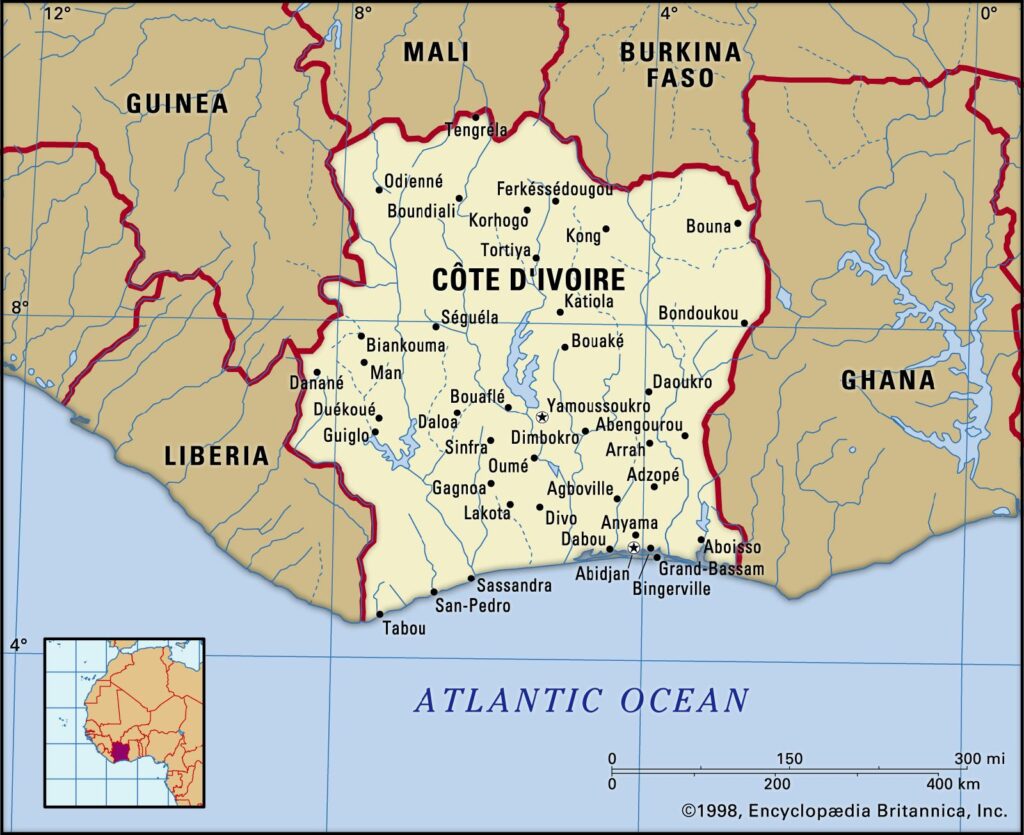France’s Exit from Ivory Coast: A New Era in African Sovereignty and Geopolitics
The recent announcement of France’s military withdrawal from Ivory Coast signals a profound transformation in West Africa’s geopolitical landscape. This decision reflects the continent’s growing pushback against lingering colonial influences and a surge in nationalist movements demanding greater autonomy. As African countries redefine their international alliances, this development raises critical questions about the future of France’s historical footprint on the continent. Beyond marking an end to a colonial chapter, it also highlights Africa’s evolving identity amid an increasingly complex global order where multiple powers compete for influence.
France Steps Back: Ivory Coast Withdrawal and Shifting Power Dynamics in Africa
France’s pullout from Ivory Coast represents more than just a military redeployment; it epitomizes changing attitudes toward foreign intervention rooted in colonial history. Once perceived as guarantors of stability, French forces are now viewed by many Ivorians—and Africans at large—as symbols of external control rather than partnership. The widespread demand for enhanced sovereignty and self-governance is reshaping traditional relationships, compelling both France and African nations to reconsider their roles.
This move may be indicative of a broader retreat by France across its former colonies, influenced by several key factors:
- Shifting Public Sentiment: Across West Africa, citizens increasingly advocate for national empowerment free from external interference.
- Diversification of Global Partnerships: Emerging players like China and Russia are expanding their footprints through infrastructure projects and security cooperation without colonial legacies.
- African-Led Stability Initiatives: Regional bodies such as ECOWAS (Economic Community of West African States) are promoting indigenous conflict resolution mechanisms over reliance on foreign troops.
Redefining Alliances: The Consequences of France’s Reduced Presence on African Geopolitics
Historically dominant in West Africa due to deep-rooted colonial ties, France has long shaped political and economic frameworks within the region. However, its recent disengagement signals an inflection point that could recalibrate regional power structures significantly.
Key drivers behind this realignment include:
- The Rise of Alternative Influences: China has become Africa’s largest trading partner as of 2023—investing over $60 billion annually—while Russia is increasing military cooperation through private security firms like Wagner Group.
- A Surge in Nationalism: Countries such as Senegal and Ghana have witnessed mass protests demanding reduced foreign military presence alongside calls for homegrown policy solutions.
- African Unity Efforts: Institutions like the African Union emphasize collective self-representation on global stages to counterbalance external pressures.
With these shifts underway, nations including Ivory Coast face new challenges securing stability without traditional French support. Governments are actively exploring pragmatic partnerships tailored to immediate developmental needs while balancing sovereignty concerns.
| Main Partners | Spheres of Collaboration | Pitfalls & Considerations |
|---|---|---|
| China | Largest investor; infrastructure projects; trade expansion; | Caution over mounting debt burdens; |
| Russia | Military training; security assistance; | The risk of political leverage affecting domestic affairs; |
| African Regional Coalitions | Economic integration; peacekeeping initiatives; | Diverse interests may hinder unified action; |
Revitalizing Franco-African Relations: Strategic Approaches Amidst Change
To maintain relevance within this transforming environment, France must adopt comprehensive strategies emphasizing mutual respect and shared growth rather than legacy dominance.
Priority actions include:
– Strengthening economic engagement through equitable trade agreements that prioritize local industry development.
– Supporting technology transfer programs aimed at fostering innovation ecosystems.
– Expanding cultural exchanges that build trust beyond governmental ties.
– Active participation in multilateral platforms addressing climate resilience—a pressing concern given that sub-Saharan Africa faces up to 50% crop yield reductions by 2050 due to climate change.
– Utilizing soft power tools such as media collaborations highlighting joint successes rather than past grievances.
Such efforts require nuanced understanding respecting each nation’s unique context while affirming sovereignty—a principle central to sustainable partnerships moving forward.
Conclusion: A Defining Moment for Both Africa and France’s Future Engagements
The exit of French forces from Ivory Coast encapsulates broader continental aspirations toward self-determination coupled with shifting geopolitical realities. While it diminishes Paris’ direct influence militarily, it opens avenues for reimagined relations based on equality rather than hierarchy.
As global powers—including the United States expanding diplomatic outreach under its “ProsperAfrica” initiative—vie for footholds across the continent, African states stand poised not only to assert independence but also shape new paradigms reflecting contemporary priorities.
Ultimately, this transition marks not just an end but also a beginning—the forging of partnerships grounded firmly in respect for autonomy while navigating complex international currents together. For France—and indeed all stakeholders—the challenge lies in adapting thoughtfully lest they be sidelined amid rapidly evolving narratives defining modern Africa.
